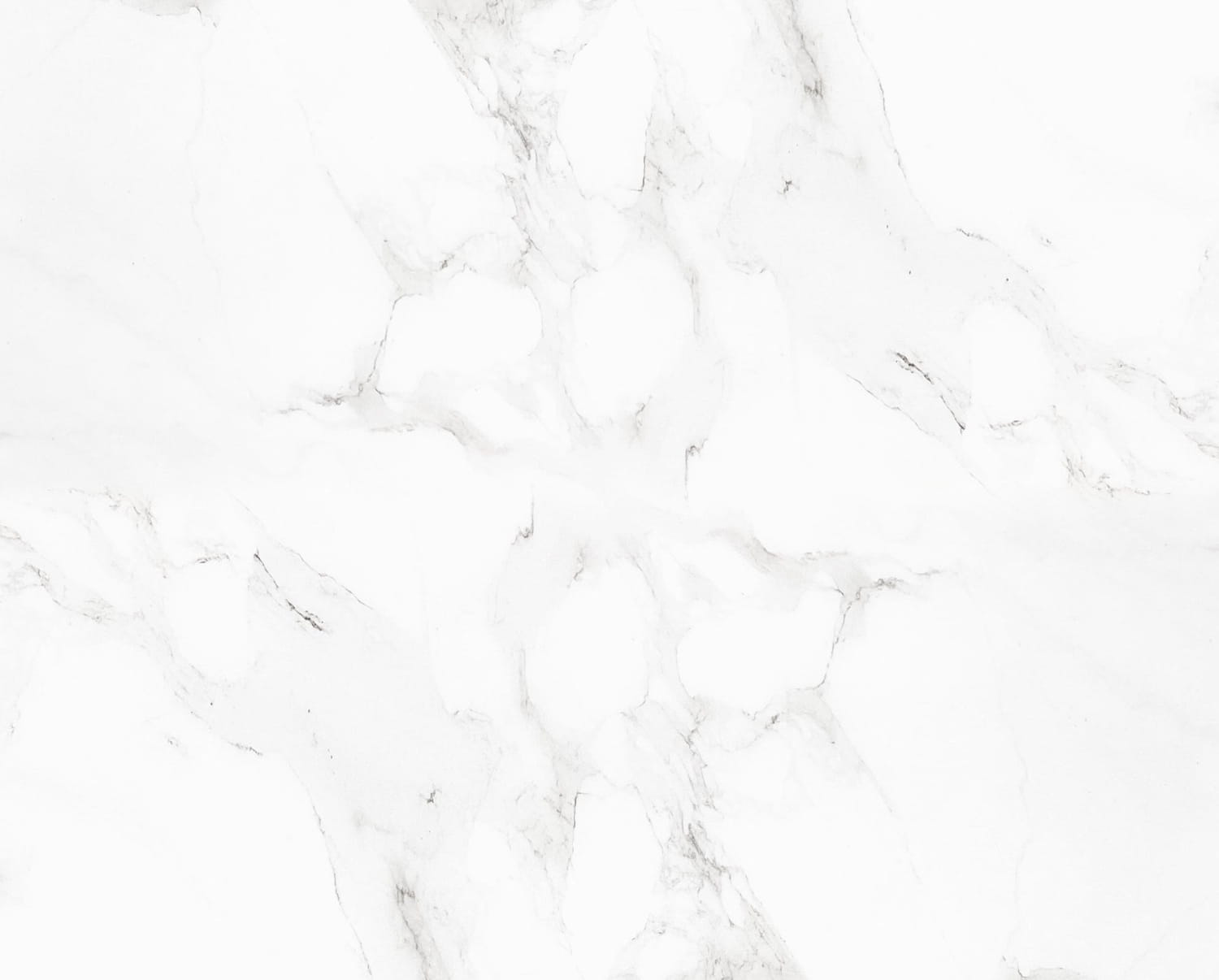Sugar is Sweet, but not to Eat! Which Sweeteners are the best? | Herbal Goodness
In this day of healthy living, sugar has been getting a bad rap due to its high level of calories, increasing the chances of developing health issues.
 Calories are calories, and not that sugar calories are more fattening. They just tend to, uh, pack a punch. For those with a sweet tooth (don’t we all?), keeping your paws off sugary treats is a hard ask, and more so when it seems like there is no delicious alternative that comes close. So, in a bid to stay healthy (and rub off the guilt), many are opting for things sugar-free: sugar-free gum, sugar-free soda, sugar-free chocolate; no-sugar ice cream even. Artificial sweeteners for their part are popping up at a faster rate than you can say cake. In truth, they might be helping to keep you in those skinny jeans, but a good deal of these sugar substitutes are actually worse than the real thing.
Calories are calories, and not that sugar calories are more fattening. They just tend to, uh, pack a punch. For those with a sweet tooth (don’t we all?), keeping your paws off sugary treats is a hard ask, and more so when it seems like there is no delicious alternative that comes close. So, in a bid to stay healthy (and rub off the guilt), many are opting for things sugar-free: sugar-free gum, sugar-free soda, sugar-free chocolate; no-sugar ice cream even. Artificial sweeteners for their part are popping up at a faster rate than you can say cake. In truth, they might be helping to keep you in those skinny jeans, but a good deal of these sugar substitutes are actually worse than the real thing.
No kidding – aspartame (aka Equal or NutraSweet), saccharin (aka Sweet N’ Low), acesulfame potassium (aka Ace K) and splenda (aka sucralose) are unhealthy than good ol’ sugar! Even agave nectar hasn’t been cut some slack either.
So, if you are at a crossroads as to which sweeteners are the best, below, we share a few.
- Stevia
Stevia is a big deal right now, and the meteoric rise of this super-duper, sweet all-natural powdery sweetener has to do with the fact that it’s upwards of 200 times sweeter than sugar, which means as little as a drop will do yah!
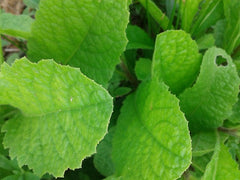
[“Drop, you say?”]
Well, stevia comes in both powdered and liquid form.
Extracted from a short shrub native to Paraguay and Brazil, this is the only true calorie-free sweetener available.
It has no carbohydrates, it does not affect blood sugar (in any case it improves insulin sensitivity, linking it to the alleviation of health issues like high blood pressure), and has anti-inflammatory effects.
- Coconut Sugar
Another healthy by-product of coconut, coconut sugar comes in both solid and liquid form, but it is most popular in granular form.
It has a taste akin to brown sugar and boasts a slew of antioxidants, vitamins, and minerals.
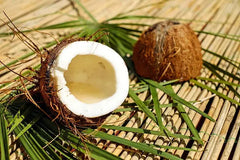
Despite its low glycemic index (the ability of a food to raise blood sugar level), many are hesitant to use it due to its high fructose and calorie content. In a real sense though, it helps keep blood sugar and insulin levels steady.
-
Organic Maple Syrup
Pure organic maple syrup is a treat, packing a healthy dose of 54 antioxidants whose benefits to the body we cannot even begin to list here, in addition to obvious perks such as improving your skin and reducing bloating.
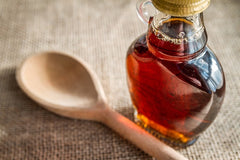
Always opt for darker varieties as these tend to hold higher levels of antioxidants.
Organic maple syrup, however, is not to be confused with the kind that comes packaged in a bottle with corn syrup and often served with pancakes. That’s different territory altogether.
- Raw Honey
The benefits of honey have long been touted for centuries, and suffice to say it’s the most popular natural sweetener [of all time].
Honey is more than just a sweetener though. In fact, in recent years it has been known more for its healing properties – thanks to its antibacterial properties and high antioxidant level – curing everything from heartburn to reducing body fat (and consequently weight).
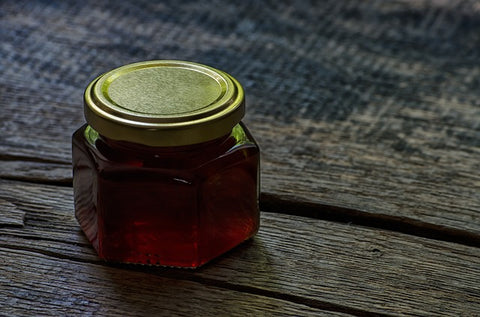
Its glucose-resembling molecular structure means the body can digest it easily.
It also remains a popular beauty product, whether that is in its natural form or as a key ingredient in skin care products.
Call it a natural elixir, and as with maple syrup, the darker the richer. Raw natural honey is the best, although this is pricier.
-
Molasses
The thick dark syrup is a by-product obtained from the process of refining white sugar.
Molasses, also known as black treacle, is as nutrient-rich as it is versatile. It’s loaded with vitamin B6, iron, calcium, magnesium and potassium.
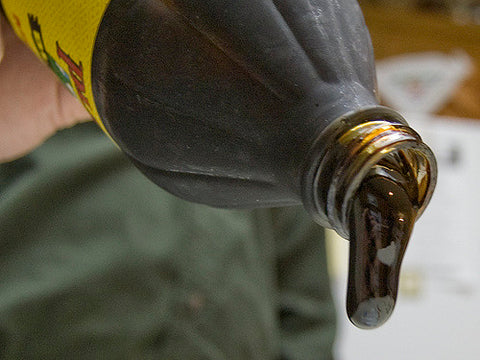
In addition to using it directly, you can also substitute sugar with molasses when baking and preparing savory delights such as sauces and chutney.
Molasses is also known to provide additional benefits such as relief from menstruation problems, diabetes, obesity as well as acne.
Talk about a nutritious sweetener!
- Brown Rice Syrup
Another healthier alternative to sugar, rice syrup is extracted through a process that involves treating whole grain rice with natural enzymes. The resulting syrup – a complex carbohydrate – almost tastes like light honey, and is packed with calories.
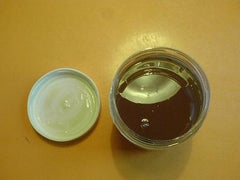
But it’s probably important to remember its high glycemic index of 98 (compare this to refined sugar 64) makes it unsuitable for diabetics because it enters the bloodstream fast, leading to a spike in blood sugar levels.
Overall though, it’s a healthy sweetener crammed with vitamins (B, B1, niacin, B6, vitamin K and more), and is also gluten-free.
- Date Sugar
On their own, dates are delicious and are used to sweeten everything from breakfast cereal, to puddings and dessert.
And you probably guessed they are healthy too, just not sure how healthy? Well, they contain vitamins like B6 and vitamin A, as well as minerals like calcium and potassium.
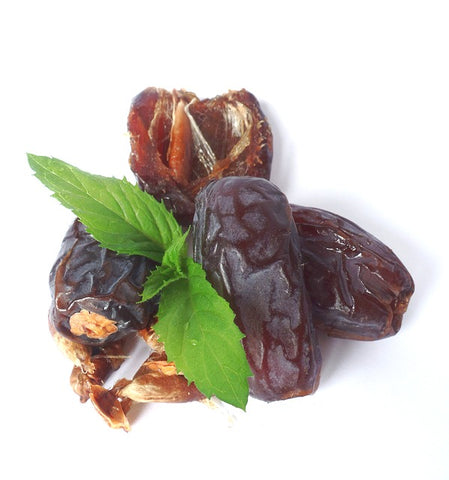
Now, in his quest for sweet and healthier, man discovered that he could make sugar from dates, and call it – date sugar!
Derived from dried dates that are then grounded, the process is all-natural and results in a brown powder that is slightly sweeter than white sugar. Problem is, it doesn’t melt (like dissolve), so it cannot be stirred in a coffee. Or tea.
But its slightly thicker consistency makes it an excellent choice for baking, and a healthy one at that, chockfull of vitamins and fiber.
Conclusion
With these all-natural sugar substitutes, you can work around your sweet tooth without any guilt or fear of harming your health.
Remember though, they may be healthier, but use them in moderation as they tend to be very high in ‘sugar’.
Related: Celebrate Healthy Independence with Organic & Chemical Free Summer Gardening










